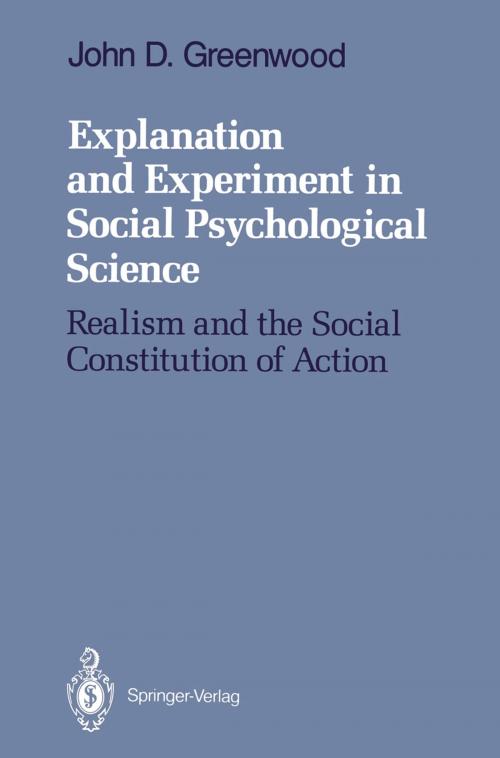Explanation and Experiment in Social Psychological Science
Realism and the Social Constitution of Action
Nonfiction, Health & Well Being, Psychology, Personality, Social Psychology| Author: | John D. Greenwood | ISBN: | 9781461388012 |
| Publisher: | Springer New York | Publication: | December 6, 2012 |
| Imprint: | Springer | Language: | English |
| Author: | John D. Greenwood |
| ISBN: | 9781461388012 |
| Publisher: | Springer New York |
| Publication: | December 6, 2012 |
| Imprint: | Springer |
| Language: | English |
This book is about explanation and experiment in a science of human action. It aims to provide a philosophy of social psychological science that both embodies sound principles of scientific reasoning and is sensitive to the social psychological dimensions of human action. The guiding principle of this book is the belief that the logical forms of causal explanation and experimental evaluation can be ef fectively employed in the scientific analysis of meaningful human action. According to most accounts, social psychological science has been in a more or less constant state of crisis for the past decades, having been subject to a host of criticisms on moral, political, methodological, and philosophical grounds. Many of these critiques have been directed against the still dominant conception of social psychological enquiry as a causal and objective scientific discipline that is closely analogous to (if not to be identified as a branch ot) the natural sciences. Thus, many of the most vigorous debates have concerned the nature of explanation and the utility of experimentation in a social psychological discipline.
This book is about explanation and experiment in a science of human action. It aims to provide a philosophy of social psychological science that both embodies sound principles of scientific reasoning and is sensitive to the social psychological dimensions of human action. The guiding principle of this book is the belief that the logical forms of causal explanation and experimental evaluation can be ef fectively employed in the scientific analysis of meaningful human action. According to most accounts, social psychological science has been in a more or less constant state of crisis for the past decades, having been subject to a host of criticisms on moral, political, methodological, and philosophical grounds. Many of these critiques have been directed against the still dominant conception of social psychological enquiry as a causal and objective scientific discipline that is closely analogous to (if not to be identified as a branch ot) the natural sciences. Thus, many of the most vigorous debates have concerned the nature of explanation and the utility of experimentation in a social psychological discipline.















